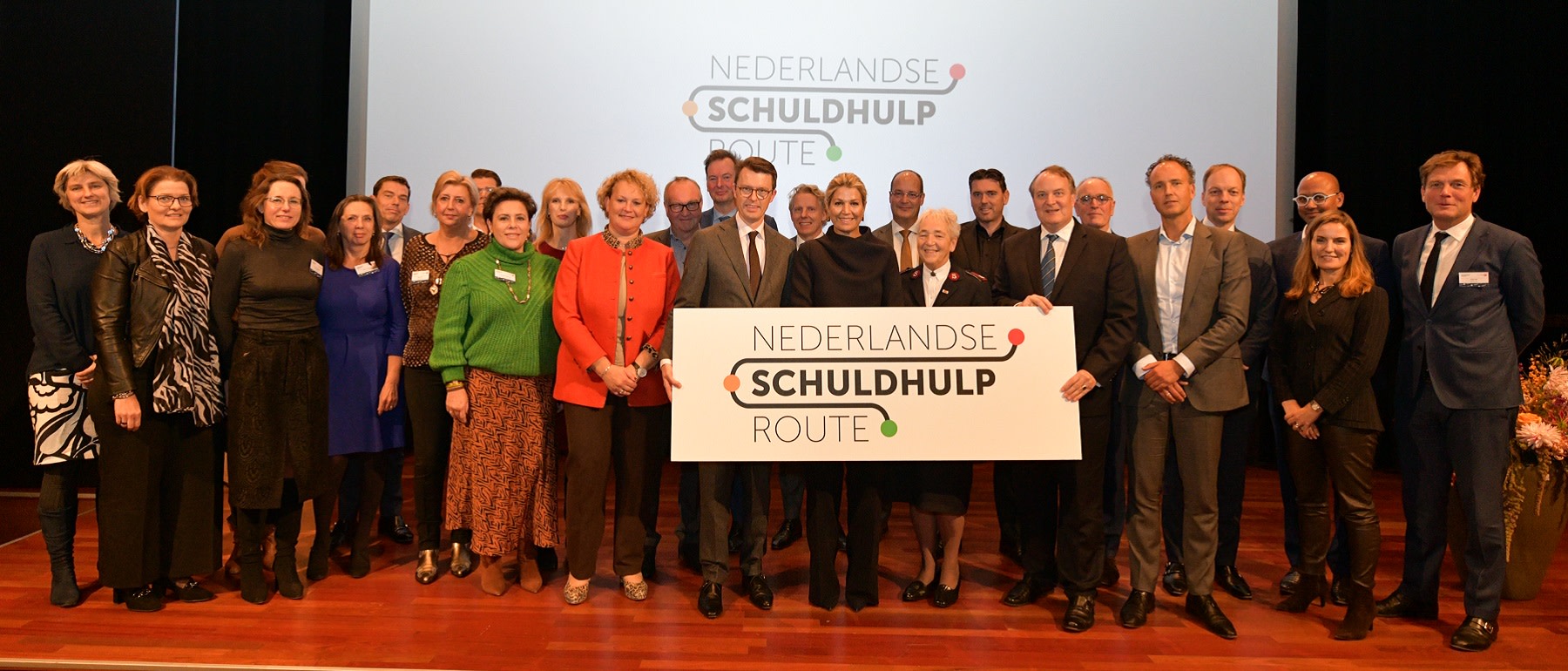Dutch Debt Relief Route launched

- Products and services
The Dutch Debt Relief Route NSR was launched today in the Dutch city of ’s-Hertogenbosch in the presence of Queen Máxima. Different kinds of organisations that recognise the early signs of problematic debt can join this network. Companies such as banks, insurers, telecommunications operators, energy companies and housing corporations can identify arrears among their customers at an early stage. The NSR will help these people will get suitable, free support, which starts at Geldfit.nl.
After completing a short test on Geldfit.nl, people can easily find the right route behind one of the following four ‘exits’: 1) online self-help, 2) a digital volunteer (‘buddy’) from the social start-up FiKks, 3) a local volunteer (e.g. Humanitas or SchuldHulpMaatje) or 4) professional help or debt relief help through their own municipality. The Geldfit.nl website allows national counsellors to cooperate simultaneously with all Dutch municipalities where municipal organisation and counselling is possible. The Hague, Deventer, Zwolle, Zoetermeer, Delft, Hoogeveen, Soest, Wijk bij Duurstede, and now ’s-Hertogenbosch are taking part in this programme. This will offer people effective aid at an early stage that fits their personal and financial situation and takes into account the municipality in which they live. Othermunicipalities can apply as well.
The NSR << LINK >> is an alliance of partners in debt-related fields – Geldfit.nl, SchuldenlabNL, Moedige Dialoog and fiKks – supported byfour major banks and the Dutch Banking Association NVB and municipalities. They have partnered in a successful pilot in the past few months. ABN AMRO, Rabobank, ING and de Volksbank, united through the NVB << LINK >>, have used their ability to identify financial problems to refer clients to Geldfit.nl. Banks try to help their clients head off risky and problematic debt by being active throughout the sector.
During the pilot, banks regularly directed clients with overdrawn accounts to Geldfit through a banner or link within their own digital channels. The goal is to reach out to people in an early stage so they receive the help they need to get a grip on their finances. The method’sstrength lies in the fact that different types of organisations that are part of the NSR can flag difficulties. “This way, financial problems can be dealt with while they are still small and it allows us to reach out to many more people to prevent debt,” NVB-chairman Chris Buijink says.
The NSR will also contribute to bringing together different organisations and initiatives that are actively solving debt problems. Many people – around 1.4 million households in the Netherlands – suffer from risky or problematic debt, eighty percent of which involvesnon-credit debt. These amounts are owed to different creditors, such as the tax authority, utility companies, online stores and health insurers. The debt problem causes not only high social costs, but also personal distress. Problematic debts often start with payment arrears. Some 2.3 million Dutch households are experiencing structural payment arrears.
Banks hope to play an important role in solving this problem by working together with other companies and municipalities, Geldfit, SchuldenlabNL, Moedige Dialoog and fiKks. Clients want banks to take on this role in society: 55% of clients believe banks are in a position to identify this problem and to help prevent payment arrears, according to the Trust Monitorfor Banks (Vertrouwensmonitor Banken) consumer survey in 2018.